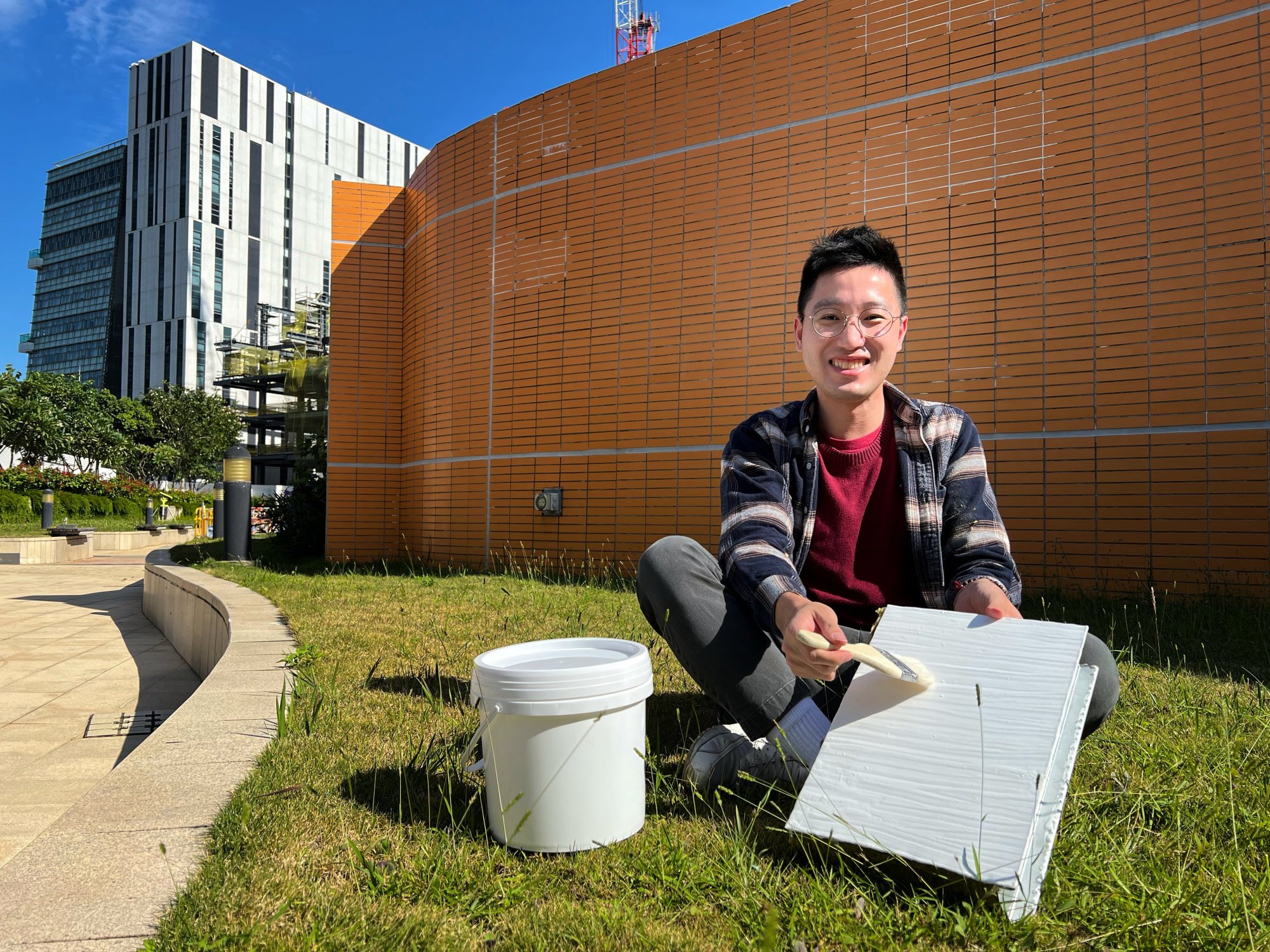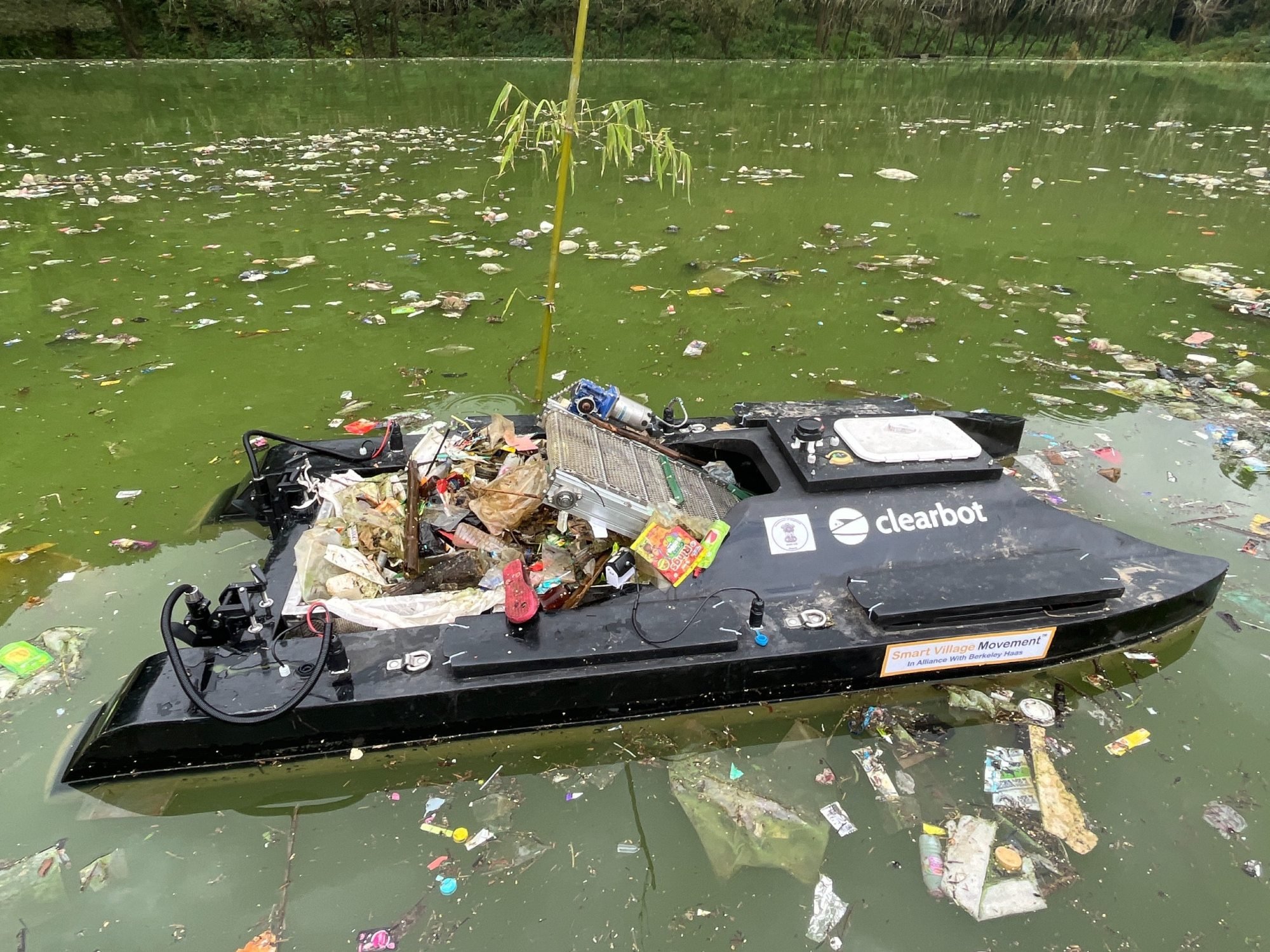
17 Mar From winning Prince William’s Earthshot prize to reviving corals in Abu Dhabi, Hong Kong start-ups add gloss to city’s greentech hub ambitions
Having started commercial production in April last year, Hung estimated that its maiden factory in Zhejiang province might have generated sales of about US$8 million last year, mainly from batteries for electric bikes.
More than 100 greentech ventures are now supported by HKSTP, according to Barry Kwong, its director of sustainability.

Around half of these specialise in green and smart-city solutions, while 20 per cent focus on sustainable building technology. Another 20 per cent are dedicated to new energy and energy efficiency, with the remainder focusing on leveraging big data and analytics for sustainable development.
Also based in HKSTP is patented plant-based compostable food-packaging maker Ecoinno, whose products have been tested by major players in the catering and aviation sectors. The firm plans to build a fully automated plant in Dongguan this year.
CEO George Chen Dah-ren last October said the company was confident about meeting the revenue and cash-flow requirements for a stock market listing by 2028.
Hydrogen start-up H2 to build Hong Kong base as launchpad into overseas markets
Hydrogen start-up H2 to build Hong Kong base as launchpad into overseas markets
Another inspiring home-grown HKSTP start-up is i2Cool, founded in 2021 by doctorate students and research staff from City University, who have patented an energy-saving paint.
First applied in subdivided flats in Sham Shui Po, the paint was inspired by the self-cooling skin of Saharan silver ants. It is now a commercial product that is said to be capable of cutting air-conditioning energy consumption by 30 per cent. It has found customers in the Greater Bay Area, Southeast Asia and Dubai in the United Arab Emirates.
Hong Kong marine greentech start-up Archireef, also based in HKSTP, has been commercialising and scaling up its 3D-printed terracotta reef tiles to restore corals and save degraded marine ecosystems. Founded by scientists at the University of Hong Kong (HKU) in 2020, its tiles are placed on the seabed to help coral fragments grow and survive.

Clearbot, another marine greentech start-up, founded by HKU graduates in 2019, uses self-driving electric boats to clean up ocean plastic waste. In the past year, Clearbot has in Hong Kong and India deployed 13 boats, each capable of collecting up to 250kg of plastic waste per day and depositing it in designated areas for collection and recycling.
Valued at US$4 million in a seed-funding round in September 2022, it has attracted backers such as the Alibaba Entrepreneurship Fund, Gobi Partners GBA and CarbonX Global.
Hong Kong must nurture start-ups to become green tech powerhouse: fintech body
Hong Kong must nurture start-ups to become green tech powerhouse: fintech body
The process was co-developed by Novetex Textiles, one of the world’s largest single-site yarn spinners, and government-backed Hong Kong Research Institute of Textiles and Apparel with an investment of HK$15 million (US$1.9 million).
However, commercial success has been harder to achieve in this case, due to high initial operating costs and limited demand from brands for upcycled stock, according to Ronna Chao, granddaughter of Chao Kuang-piu, who founded Novetex nearly half a century ago.

“Theoretically speaking, upcycled yarn should be cheaper than virgin material, but we have not reached those economies of scale yet, because I’m not processing large amounts of the same quality and same type of fibre,” Chao said. “Because I can’t reach a large scale, [the upcycled yarn] becomes expensive.
“One of the problems is [our branded customers] don’t buy back their upcycled yarn. The processing fee that we charge by weight is very low. Our goal is actually for them to buy back the upcycled yarn [and] put it back into their collections.
“I need more and more [big names in the industry] to do this, so that there’s much more awareness, then there’s more volume and then the cost will come down.”
GreenTech Summit: Hong Kong faces skills gap in decarbonisation push
GreenTech Summit: Hong Kong faces skills gap in decarbonisation push
In the eyes of Christine Loh Kung-wai, chief development strategist at the Institute for the Environment in the Hong Kong University of Science and Technology and a former under secretary for the environment, when it comes to developing greentech Hong Kong will have an advantage in industries where the city has global leadership, such as textiles and garments, electronics, property and food.
“These are the areas that Hong Kong should focus on, but they are often overlooked because these industries are seen as boring,” she said.
The government should pay more attention to the circumstances of specific sectors where greentech is promising when devising policy support, and not see greentech only from the perspective of digitalisation, Loh added.
Government funding for greentech is set to increase. Besides the HK$400 million Green Tech Fund established in 2020 to fund research, government investment unit Hong Kong Investment Corporation will make its first batch of direct investments and co-investments in the first half of this year, Financial Secretary Chan said last month. Greentech and finance is one of four areas covered.
Hong Kong greentech start-ups should be prepared to operate in multiple locations to access talent and manufacturing facilities, said GRST’s Hung.
“Hong Kong has a lot of talent, but traditionally it has been more a hub for finance than technology innovation, so the resources we can find here are insufficient to support everything we want to do and we have to set up operations in mainland China or elsewhere,” he told the Post last September.
Hong Kong start-up’s use of recycled plastic drowns out noise in construction
Hong Kong start-up’s use of recycled plastic drowns out noise in construction
Greentech, like other technology businesses, is capital intensive due to the need for recruiting many highly educated scientists, and there is no guarantee of commercial success, Hung said.
“It’s a big gamble – you need to raise a lot of money to start something that might not have a lot of results,” he added. “My advice for young greentech entrepreneurs is, if you have a good idea, don’t hesitate. Just go for it and never give up.”
